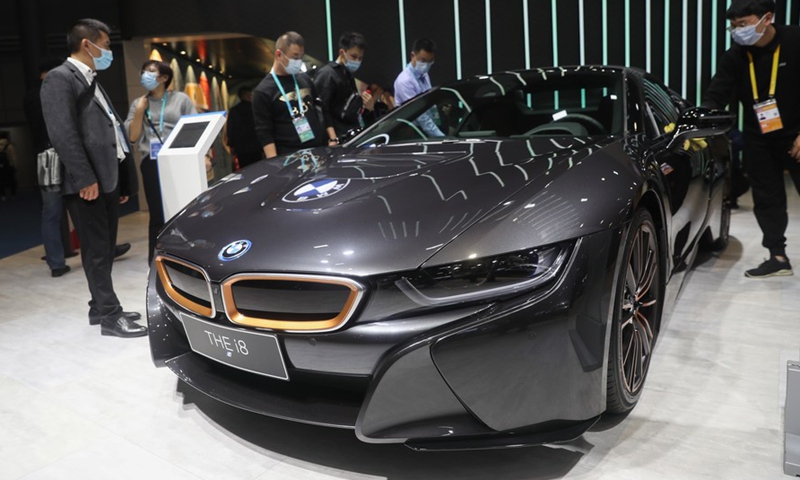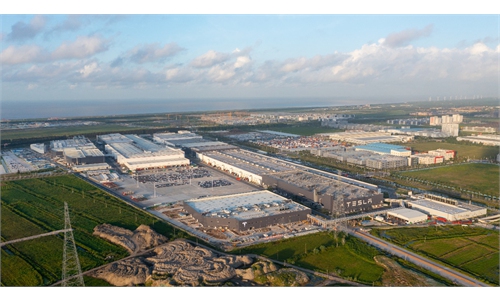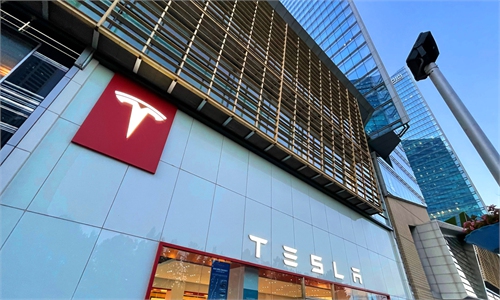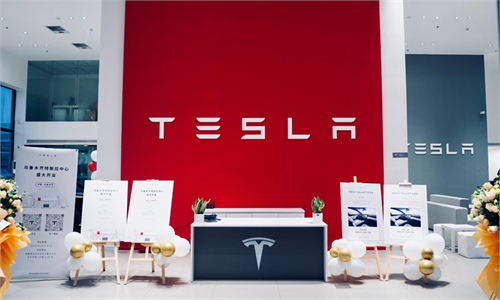Foreign car companies record mixed performances in Chinese market in 2021 with chip shortage becoming a headache for some firms

A BMW i8 car attracts visitors at the Automobile exhibition area during the third China International Import Expo (CIIE) in Shanghai, East China, November 6, 2020. Photo: Xinhua
Foreign car companies showed a mixed performance in the Chinese market last year with some brands, like BMW and Porsche, recording a surge in sales, while some companies are facing the challenge of a widespread chip shortage.
According to a report by the Securities Times, sales of German automaker BMW in China hit a historical record in 2021. The company delivered 846,237 units in China last year, up 8.9 percent on a yearly basis. Following the same trend, Porsche delivered 95,671 cars in China in 2021, up 8 percent from the previous year, the report showed.
US electric car brands were also satisfied with their business performance in the Chinese market last year. According to a report Tesla recently shared with the Global Times, the company's Shanghai plant delivered 484,130 vehicles in 2021, a stunning year-on-year growth of 235 percent. With these performance numbers, the company called itself the "King" of new-energy vehicles in 2021.
On the other hand, other foreign vehicle brands saw their business shrink in China last year due to new challenges like the coronavirus pandemic and a microchip shortage.
For example, Audi, which suffered a severe microchip shortage in recent months, delivered 701,289 vehicles in China in 2021, down 3.6 percent year-on-year, according to data revealed by the company.
Similarly, Volkswagen saw its delivery of vehicles in the Chinese mainland and Hong Kong drop by 14.1 percent to 3.3 million in 2021, according to a report by the China Business Journal.
Stephan Woellenstein, CEO of the Volkswagen Group China, called 2021 one of the most challenging years since the German automaker entered the Chinese market, stressing that chip supply shortage has hindered the company's capacity to meet customers' demands.
China's car market continued to grow at a steady pace last year, with data from the China Association of Automobile Manufacturers showing that the country's car production and sales surged 3.4 and 3.8 percent respectively in 2021.



